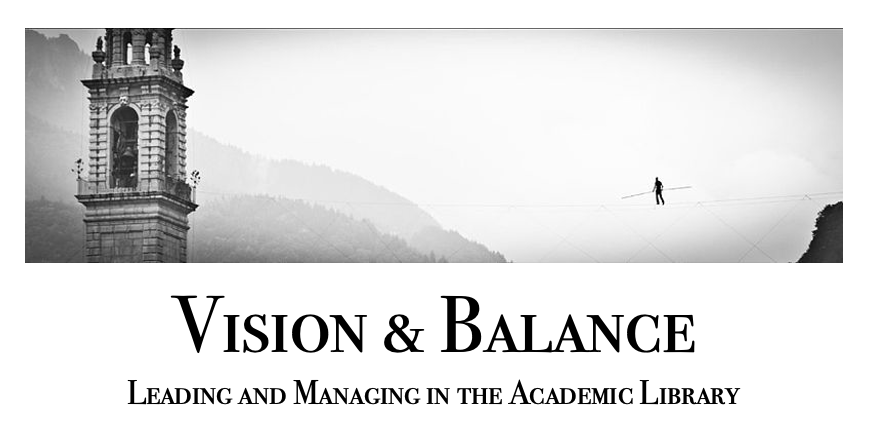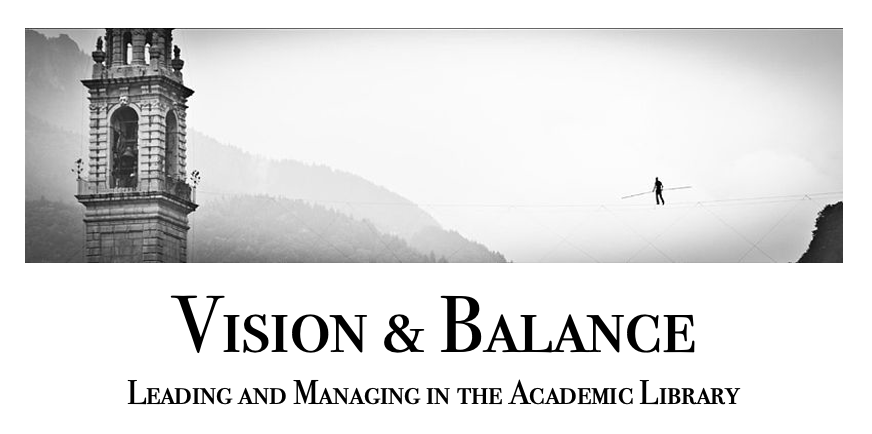Two and a Half Cheers for the "Scarcity Mindset"
Every academic library is dealing with the problem of scarce resources. So how should you respond when someone accuses you of having a "scarcity mindset"?

In the latest installment of my ongoing discussion of important ideas and processes that are too often denigrated in our profession (and yet that do have downsides and complications – hence "two and a half" rather than "three" cheers), today I'm going to briefly talk about a phrase that has really come to grate on me in recent years: "scarcity mindset."
We've all heard this term and may have used it ourselves. What does it mean? Depends whom you ask, but the phrase is generally used in a derogatory way to refer to a person's tendency to think in terms of competition in a context of limited resources rather than cooperation and possibility in a context of abundance. I was actually surprised to see that there's an entry for "scarcity mentality" on the WebMD website, though here it seems to be talking mostly about a pathological mental habit rather than about a more general understanding of the world (or a part of it). According to WebMD, "if you have a scarcity mindset, you are so obsessed with what you lack that you can't seem to focus on anything else, no matter how hard you try," whereas "with an abundance mindset, you can see opportunities and possibilities that you might miss with a scarcity mindset, when you're fixated on one thing."
Of course, any mental orientation or general understanding of the world can be taken to a pathological extreme. But what I'm offering "two and a half cheers" for today is not a rigid understanding of the world as a place in which you'll never get enough of what you need, but rather a mental awareness of the fact that in virtually every professional (and certainly library) context resources are, in fact, always strictly limited – and, in many if not most of those contexts, essential resources are not just limited but scarce. Virtually no academic library has all the staff it wants or arguably needs; no library has a big enough collections budget or enough space for the all the materials it already owns. Every year the library asks for a bigger budget, because every year the cost of being a library grows; librarians constantly weed their collections in order to make room for new acquisitions, because virtually every library's space is genuinely insufficient.
These may seem like uncontroversial observations, but anyone who has been in a leadership or management position, and therefore charged with managing limited resources, has probably been criticized for having a "scarcity mindset" by those who want to use the resources for their own projects and don't like being told that the resources are already tied up in other, equally important uses – or, worse, that funds are actually available but need to be reserved strategically for other possible uses.
So what should you say when someone accuses you of having a "scarcity mindset"? Here are a few possible responses, all designed not to shut down conversation or make the other person feel dumb, but rather to prevent the conversation being shut down and to dig deeper into the real issues:
- "When you say 'scarcity mindset' in this context, what do you mean? Do you believe the resources in this case are more abundant than they seem to me?"
- "Can you tell me more about how you believe I should be thinking about the resources in this case?"
- "If you were in my position, how would you be thinking about the allocation of these resources? Do you think we need a different strategy?"
- By 'scarcity mindset,' do you mean that I'm misinformed about the nature of these resources, or do you think my priorities in managing them should be different?"
